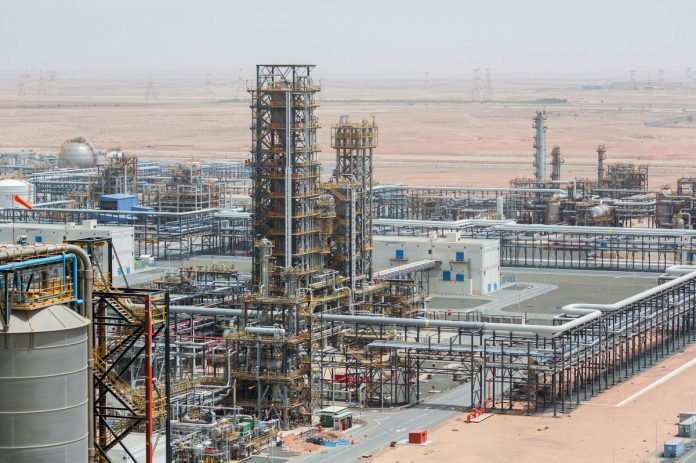
(Bloomberg) – Oil joined a selloff for global equities as escalating trade hostilities between the U.S. and China stoked fears about growth, while OPEC and its allies vacillated about their next steps.
Futures slumped as much as 3.8% in New York, putting them on track for their worst monthly loss since December. The plunge followed suggestions in Chinese media that the nation could restrict rare-earth exports critical to the U.S. defense, energy and electronics industries. The OPEC+ producer coalition, meanwhile, is split on when to hold a critical meeting to discuss output cuts, according to delegates familiar with the discussions.
The deepening trade dispute is dominating investor sentiment even as the physical crude market remains tight amid multiple supply risks, from Iran to Venezuela to Libya. Output cuts by the Organization of Petroleum Exporting Countries and its allies expire at the end of June, but the group’s “wishy-washy” stance on simply setting a new date is adding to uncertainty, said Michael Loewen, a commodities strategist at Scotiabank in Toronto.
“The macroeconomic overlay is affecting everything,” he said. “If China starts restricting that flow of rare earths, that will materially restrict economic growth.”
West Texas Intermediate crude for July delivery fell $1.23 to $57.91 a barrel on the New York Mercantile Exchange at 1:00 p.m. It earlier slid to $56.88, the lowest since March 12.
Brent for July settlement dropped $1.19 to $68.92 a barrel on London’s ICE Europe Futures exchange and fell as much as 2.9%. The global benchmark crude was trading at an $11.46-a-barrel premium to WTI, the widest gap in four years.
Tight Supply
Even as prices are sinking, spreads between monthly Brent contracts suggest that physical markets are growing increasingly tight. The premium on prompt Brent futures settled at $1.44 a barrel on Tuesday, the strongest since September 2013 — a condition known as backwardation that signals short-term demand is outpacing supplies.
Amid that tightening picture, tensions continue to rise in the Middle East. U.S. National Security Adviser John Bolton on Wednesday blamed Iran for attacks on oil tankers near the Persian Gulf this month.
The U.S. shouldn’t underestimate China’s ability to fight the trade war, the People’s Daily, a flagship newspaper of the ruling Communist Party, said in an editorial Wednesday. That publication, along with Global Times and Shanghai Securities News, all indicated that Beijing is gearing up to use its dominance of rare earths in its trade battle with Washington.
Meanwhile, American crude inventories are forecast to have fallen by 500,000 barrels to 476.3 million barrels last week, following two weeks of gains, according to the median estimate in a Bloomberg survey. The official Energy Information Administration data is due Thursday.






[…] China banned imports in January 2018, it started a domino effect. Shipments were diverted to Southeast […]